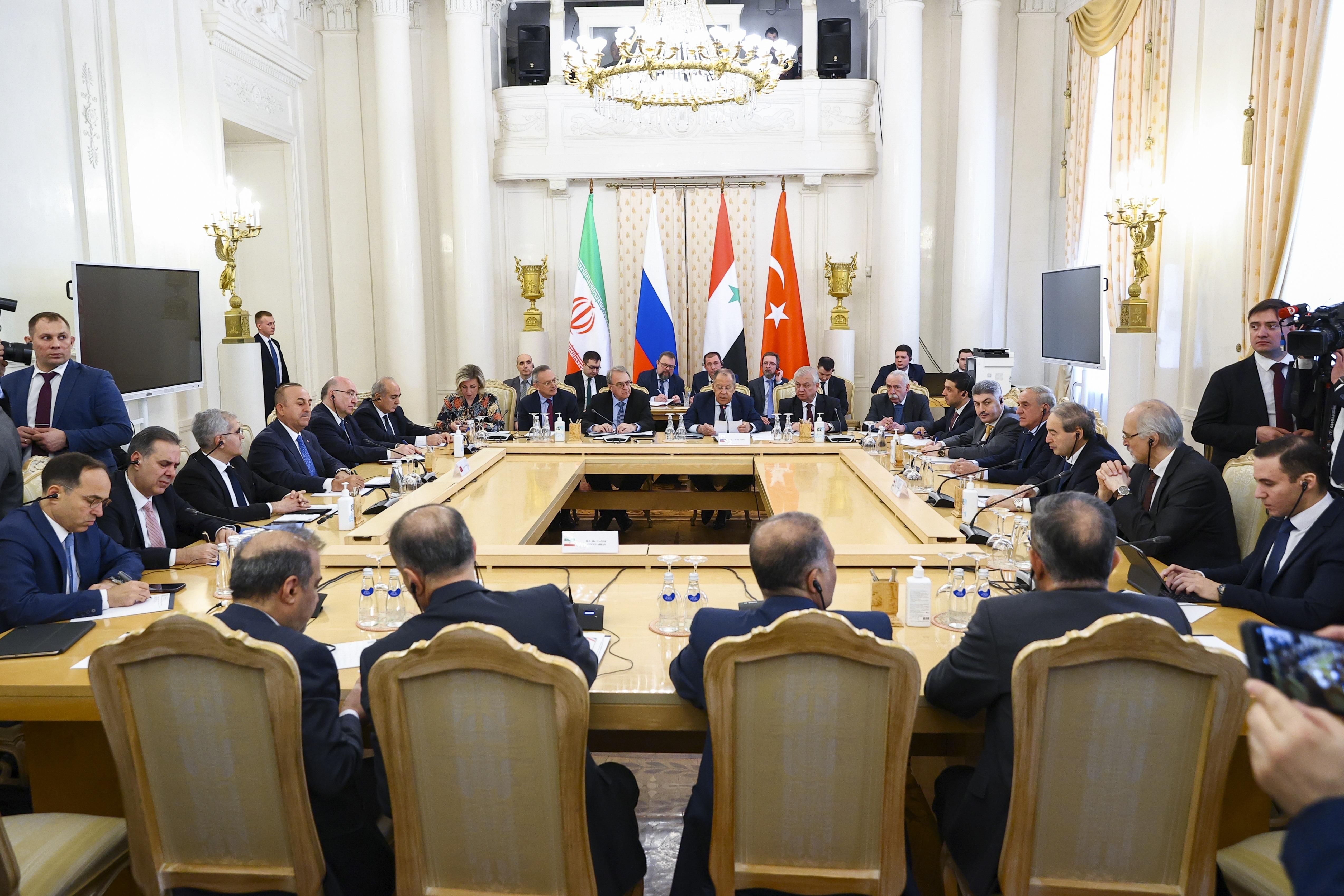 In this photo released by the Russian Foreign Ministry Press Service, a view of meeting of the foreign ministers of Russia, Syria, Türkiye, and Iran in Moscow, Russia, May 10, 2023. (PHOTO / AP)
In this photo released by the Russian Foreign Ministry Press Service, a view of meeting of the foreign ministers of Russia, Syria, Türkiye, and Iran in Moscow, Russia, May 10, 2023. (PHOTO / AP)
MOSCOW – Russian Foreign Minister Sergei Lavrov met with his counterparts from Iran, Syria, and Türkiye in Moscow, where they proposed to assemble a roadmap normalizing relations between Türkiye and Syria, the Russian Foreign Ministry said Wednesday.
"These positive developments would also bring new opportunities and prospects for the Astana format, which aims to facilitate a peaceful settlement in Syria."
Sergei Lavrov
Russian Foreign Minister
The four sides agreed to appoint their deputy foreign ministers to prepare the roadmap, aiming to advance relations between Türkiye and Syria. The diplomats would be working with the defense ministries and special services of the four countries.
ALSO READ: Tehran, Moscow discuss further improvement of economic ties
The participants "affirmed their commitment to Syria's sovereignty and territorial integrity," and their commitment to "combatting terrorism in all its forms and manifestations," according to the foreign ministry.
They also stressed the importance of increasing international aid to Syria and facilitating the voluntary and safe return of Syrian refugees to their homeland.
ALSO READ: Russia, Iran, Syria and Türkiye hold talks on security, ties
In his introductory speech before the meeting, Lavrov noted that the start of the Syrian-Turkish ties normalization process has a "noticeable positive impact" not only on the situation in Syria, but also on the situation in the Middle East as a whole.
He added that these positive developments would also bring new opportunities and prospects for the Astana format, which aims to facilitate a peaceful settlement in Syria.
READ MORE: 'Türkiye, Egypt to work closely on Syria, Libya'
The Russian foreign minister further criticized the current unilateral sanctions on Syria by the West, which hinder humanitarian aid.